There is no denying that Turkey’s President Recep Tayyip Erdoğan has dominated the political scene and the political life in the country in the last two decades. Erdoğan gained his first important success in Turkish politics by being elected Istanbul’s Mayor in 1994 in a very surprising manner from the Islamist Welfare Party (Refah Partisi). His leaning towards Islamism, heated speeches, young and dynamic style, struggle with the state elite (e.g. military and the secular establishment), and the use of colloquial language distinguished himself from all other politicians. However, the secular establishment tried to prevent Islamist Erdoğan’s rise by putting him into jail due to a poem he had read. The decision was unfair; this further impassioned Erdoğan and made him a hero in the eyes of millions of people who were alienated from the state and Turkey’s unjust and corrupt system. After getting out of prison, Erdoğan established a new and more moderate and liberal Islamist/conservative party, the AK Parti (Justice and Development Party) in 2001. He won the very first election he entered in 2002 and became the Prime Minister of Turkey in 2003, a few months after winning the election due to his electoral ban. Since then, he has been serving as the Prime Minister (2003-2014), the President of the Republic within the parliamentary system (2014-2018), and the President of Türkiye (2018-2023, 2023-) within the Presidential system. He is -without any doubt- the most popular (after Atatürk), influential, controversial, and polarizing political leader in Turkish political history. However, due to constitutional limits, Erdoğan’s tenure in office will normally end in 2028. For sure, a strongman like Erdoğan could find ways to lengthen his term. But if we accept the constitution as the basis of Turkey’s political system, this will be Erdoğan’s last term. Thus, discussions about who could replace Erdoğan as the new leader of right-wing politics have become an important issue in foreign countries’ think-tanks and international media. In this piece, I will try to respond to this question and analyze who could replace Erdoğan.
Before getting into a discussion about the potential successors, one can realize that Turkey’s current political system is often labelled as hyper-presidentialism due to the very strong and central position of the President within the system. Of course, Turkey still has a democratically elected parliament responsible for making laws and it implements free and fair elections, but the Western and pro-Western political scientists often criticize the current political system for not having any check and balance mechanism against the mighty powers of the President. However, one should keep in mind that, looking at the world map starting from North America and going toward the East, it is hard to find any real functioning democracies after Greece (except for some far East democracies such as Japan and South Korea). So, Turkey’s current political system and Erdoğan’s hybrid or mixed regime between democracy and authoritarianism is also a direct consequence of Turkey’s geopolitical reality; a country stuck between the West and the East and so close to Russia, which promotes authoritarian rule and supports authoritarian leaders (Lukashenko etc.) in the region. Thus, unless Turkey makes a real change in getting rid of this geopolitical curse and develops better relations with the West, Erdoğanism might stay in the country although Erdoğan will be gone in the near future.
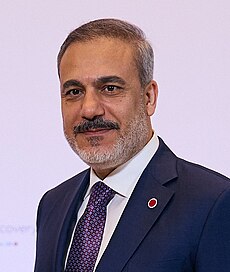
Hakan Fidan
Now let us look at the potential successors. President Erdoğan has a larger than life personality and obviously it would be very difficult for anyone to replace him. However, as Erdoğan gets older (69), and advances towards his final 4-5 years, there are new candidates appearing in the political scene and media to replace him. Among them, one of the most popular candidates these days is Turkey’s current Foreign Minister (2023-) and the former President (Undersecretary) of Turkey’s National Intelligence Agency (MİT) (2010-2023) Hakan Fidan. Originally from Van and having Kurdish roots, but born and raised in Ankara, Fidan is still young (55), charismatic for the right-wing nationalist electorate with his enigmatic intelligence background, but lacks the populist politician qualities of Erdoğan. He rarely appears on TV channels and his voice is still unknown for many in the country. It is still hard for many to think of Fidan making populist speeches in crowded public meetings and demonstrations and to enchant the crowd like Erdoğan does. However, his deep connections within the security bureaucracy (Fidan comes from military background, he studied in the United States in Maryland University, he worked as political consultant for the Australian Embassy in Ankara for a while, and he ruled MİT for 13-14 years while collaborating with his American and European counterparts) both in Turkey and among the allies, is a strong asset for him. Fidan could learn petty politics in time and could become successful in replacing Erdoğan although I think he is not a favorite candidate. Fidan’s ideology is unknown and he now seems like trying to appeal to nationalist and conservative right primarily; but he was also one of the key figures in Turkey’s Kurdish opening in the recent past, which might help him to have more support from Kurdish voters, but also risking the support of Turkish nationalists in the future.
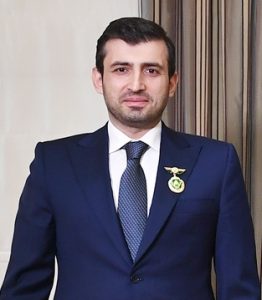
Selçuk Bayraktar
Another potential candidate and one of the most likely successors is Selçuk Bayraktar, Erdoğan’s groom. Bayraktar is married to Sümeyye Erdoğan Bayraktar, he is very young (44), and he works in the defense industry, a sector that is supported by almost everyone in the country. Originally from Trabzon, Bayraktar was born and raised in Sarıyer, İstanbul and had a graduate education in the U.S. in the University of Pennsylvania and the Massachusetts Institute of Technology (MIT). As an engineer, he established the Baykar Teknoloji company in 2010 as a successor company of his father Özdemir Bayraktar’s old firm producing automobile vehicles and parts. Together with his brother Haluk Bayraktar, Selçuk Bayraktar began to develop and produce high-developed armed drones or unmanned aerial vehicles. Bayraktar, with the help of his father-in-law, became very successful in the drone business and began to make large sums of money in recent years by Turkish drone sales to many countries including Azerbaijan, Qatar, Libya, Ukraine, Turkmenistan, Poland, Morocco, Ethiopia, Pakistan, Kirghizstan, Nigeria, and Mali etc. Turkish drones now have a very good reputation in the world due to their cheapness and high-level of efficiency. Having good relations with Azerbaijan, Bayraktar was recently invited to the U.S. aircraft USS Gerald R. Ford, an important sign of his increasing prestige among the world’s only left superpower and Turkey’s historical ally. Bayraktar sometimes appears on TV channels and due to his nationalist speeches focusing on the strength of Turkish Armed Forces, the institution that established the Republic of Turkey a century ago, he has considerable support among the right-wing and mainstream voters. However, Bayraktar’s rise and central place in the defense industry might be considered risky by Turkey’s imminent neighbors and regional countries including Greece, Armenia, Iran, Syria, and even Iraq and Israel. Russia and China, two non-Western countries which have recently become Turkey’s most important trading partners might also be abstained from Bayraktar, a defense industry entrepreneur who seems to have open support from Washington. Moreover, American defense industry companies might not also be very happy to see Turkey becoming increasingly independent and self-ordained in the defense industry. In addition, similar to Fidan, Bayraktar as an engineer and businessman, lacks Erdoğan’s qualities as a populist politician. However, recently, he has begun to top the list and presented as the likely successor of President Erdoğan. Since President Erdoğan trusts her daughter Sümeyye very much in politics and has a natural affection toward her daughter, his decision might be affected from this emotional aspect and he might choose and point out Albayrak as his successor. Journalist İsmail Saymaz also recently wrote that Erdoğan’s successor will be Selçuk Bayraktar.
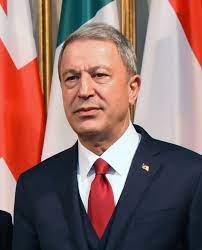
Hulusi Akar
Hulusi Akar, Turkey’s former Chief of General Staff (2015-2018), and Defense Minister (2018-2023) was also presented as a potential candidate to Erdoğan until recently. However, he was recently elected deputy from Kayseri and was not given any Ministerial position by Erdoğan, a sign that he might not be favored by the President as the likely successor. Akar is also a bit older (71) compared to other candidates, which might reduce his chances in a very young and dynamic country. It should be also stated that soldiers are not very successful in Turkish politics in terms of electoral performance and none of the political parties having military leaders (İnönü’s CHP, Osman Pamukoğlu etc.) showed a good performance in elections against the populist civilian leaders. But being nationalist, hawkish, and not anti-Western, Akar could still find a chance in the future to serve as the President.
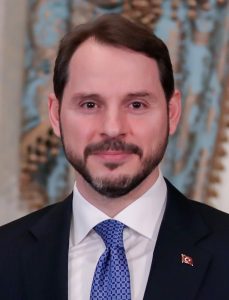
Berat Albayrak
Erdoğan’s another groom, Turkey’s former Minister of Energy and Natural Resources (2015-2018) and Finance Minister (2018-2020) Berat Albayrak (45) was also a likely candidate a few years ago. Albayrak is married to Esra Erdoğan and had a great chance to replace his father-in-law, but his performance as the Minister of Finance coincided with a terrible economic crisis in the country, which left a bad taste for everyone and reduced his chances. However, Albayrak is still a potential successor due to his inner circle position within the Erdoğan family and his prior success as the Minister of Energy and Natural Resources (Turkey’s recent hydrocarbon discoveries in the Black Sea region are made by the ships purchased by Albayrak).
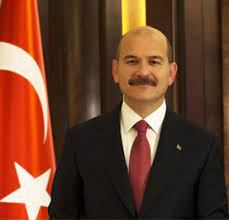
Süleyman Soylu
Another potential candidate who has lost his advantageous position recently is Turkey’s former Minister of Interior Affairs (2016-2023) and Minister of Labour and Social Security (2015-2016), Süleyman Soylu (54). Coming from the center-right political tradition, Soylu had once good support among the Turkish nationalists and former center-right elements. Plus, as the head of all police forces, Soylu was very influential in domestic politics a few months ago. However, now it seems like his role in the new term is rather limited as he serves only as an ordinary deputy. Thus, Soylu is not given too much chance actually. However, it should be stated that Soylu is a better politician in terms of dialogue with ordinary people, organizing large demonstrations, and populism in general compared to previous alternatives.
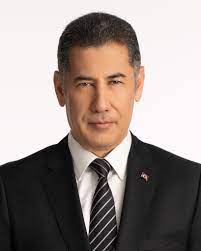
Sinan Oğan
Coming from Azeri background, Sinan Oğan (54) is the new transfer of President Erdoğan to AK Parti prior to the second round of the 2023 Presidential election. He is coming from an ultranationalist (MHP) background and has close ties with Azerbaijani political leadership. Although Oğan now does not have any position in the government, his developing relations with Erdoğan and his alleged endorsement by President Ilham Aliyev in Azerbaijan could give him a chance in the future to replace Erdoğan and become the new leader of the right-wing. Oğan is a better politician compared to all other alternatives as he served previously as MHP’s Iğdır deputy and was a presidential candidate himself against Erdoğan in the first-round of 2023 elections. He took around 5 % of the votes, which shows his true potential as a young and hawkish Turkish nationalist leader who could further militarize the country and boost nationalism and the national defense industry. Oğan could replace MHP’s Devlet Bahçeli as well in the near future as Bahçeli gets very old.
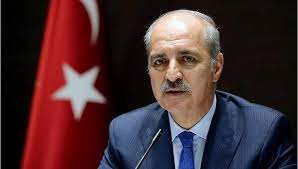
Numan Kurtulmuş
Born in 1959 in Ordu, Numan Kurtulmuş is an important National Outlook (Milli Görüş) politician similar to President Erdoğan and a highly-qualified academic. He is currently the President (Speaker) of the Turkish Parliament and has a leadership potential although he had been staying under the shadow of Erdoğan for many years. However, after Erdoğan retires, despite his old age (64), Kurtulmuş could step forth and try his chance to become the new leader of AK Parti. Kurtulmuş could also get support from Erbakan loyalists and more traditional Islamist circles of the party.
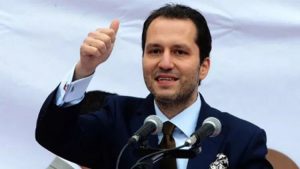
Fatih Erbakan
Being the son of Turkey’s famous Islamist politician and the first Islamist Prime Minister (1996-1997) Necmettin Erbakan, Fatih Erbakan has also a considerable chance to lead the right-wing politics in Turkey after President Erdoğan. A very young politician born in 1979, Erbakan has all the qualities to lead the Islamist bloc as he is young (44), a true believer, and has good relations with bureaucratic institutions. He is currently the chair of New Welfare Party (YRP), which had supported President Erdoğan in the previous presidential election in May. Since an Islamist movement growing outside of AK Parti is a real danger for AK Parti and Erdoğan regime as well as the Western powers who are afraid of an anti-Occidentalist Islamism to get strong, the young Erbakan himself and his party members could be given important ranks within the AK Parti in the coming years. This might even create a chance for him to become the new leader after Erdoğan.
In conclusion, replacing a man for all seasons is a tough job and Erdoğan’s positive and negative deeds and speeches in Turkish politics will continue to shape the country for long years. But for sure, the graveyards are full of indispensable men and everyone could be replaced. In that sense, the trends in global politics and Turkey’s key partners such as the U.S., the EU, Russia, and Azerbaijan, will also affect who will replace Erdoğan. In the meantime, it is still possible for the opposition to gain power with a leadership change and come to government position following Erdoğan’s retirement.
Assoc. Prof. Ozan ÖRMECİ



















































